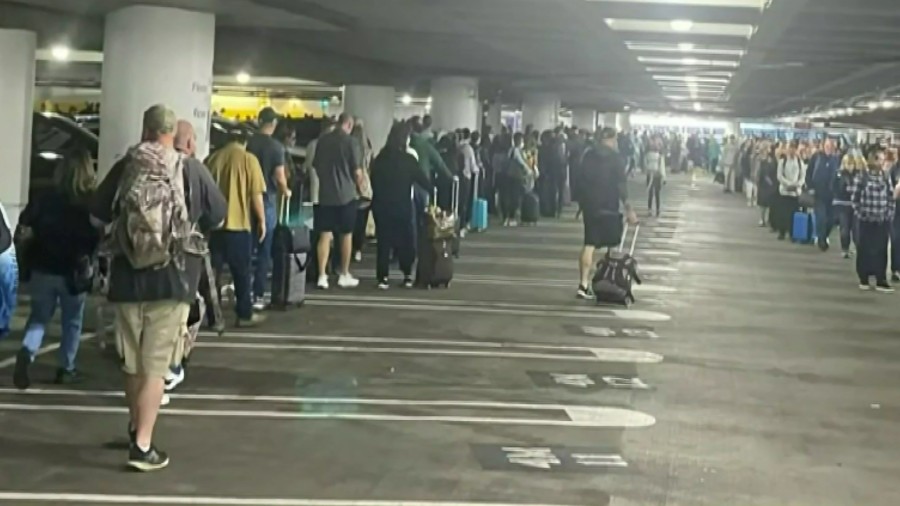
Seattle-Tacoma International Airport is apologizing for the abnormally long security lines last Sunday, which stretched into the Sea-Tac parking garage.
The airport says it was a combination of unexpectedly high numbers of end-of-summer travelers, not enough Transportation Security Administration officers to meet the demand, and construction taking two lanes offline. More passengers went through security between 7 a.m. and 1 p.m. Sunday than any other morning of the pandemic, according to a Port of Seattle blog post.
Passengers reported waiting more than two-and-a-half hours in line, and many missed their flights.
Sea-Tac security breach causes delay, grounds flights for 40 minutes
Port of Seattle spokesperson Perry Cooper said traditionally, summer travel starts to go down in September — and that’s what they had counted on this year.
“We would normally see about a 15% drop after Labor Day, and in the last few weeks we are not seeing that,” he said.
He believes this change is due to the pandemic, as people are eager to get out on trips again, no matter the season.
“With the pandemic, we’re seeing a bit of a changing dynamic in the travel trends … Even though we haven’t had a lot of business traffic come back, which is what we typically see in the fall, we’ve still got a lot of that leisure traffic that just wants to get out and travel,” he said.
Sea-Tac TSA had brought on extra security staffers from around the country for the summer, but this program ended after Labor Day, in anticipation of the tourism high season coming to a close.
“As they came to the end of Labor Day, which is typically when we would see our traffic go down, then those plans were to have those folks go back to the airports where they normally work,” Cooper explained.
However, passenger Ray Pardo, who said he waited three hours in the security line Sunday before his flight to Atlanta, believes the airport and TSA should have known to expect this late-summer boom in passengers.
“The data — the number of people arriving at Sea-Tac — had to be available from the airlines … because the airlines have sold the tickets, so they knew we were coming,” Pardo said. “The fact that that left hand is not talking to the right hand, I think, is a little concerning.”
Pardo said he blames the airport, TSA, and the airlines equally, and believes it comes down to a lack of communication among the three groups.
“The airlines and TSA and Sea-Tac management have got to be a lot closer in comparing volumes expected,” he said.
Cooper said that the airlines routinely provide TSA and Sea-Tac with an idea of passenger volumes ahead of time.
“They’ll get projections up to two weeks in advance,” he said, adding, “We work together as a team to try and figure out where some of those high-end pieces will be, when some of that will happen, so you try and plan ahead of time as far as you can for your best use of your folks.”
He said they were anticipating 59,000 passengers for Sunday, which is comparable to busy summer days. When asked why more TSA agents were not brought on for the weekend when those projections were out ahead of time, Cooper said this was a question for TSA, as they determine their own staffing levels.
TSA did not answer this question when asked in an email by KIRO Newsradio.
Future weekends will see things done differently. Cooper said they are already planning to have extra TSA officers this coming Saturday and Sunday.
“That is something that they’ve been working on, and they will have more staffing here this weekend,” he said.
In an email, TSA spokesperson Lorie Dankers said they would work to prevent another scenario like this past Sunday.
“Based on departing passenger projections, we will continue to ensure that we have TSA officers in place through staffing options available to TSA including the use of overtime to extend the shifts of TSA officers during peak times to ensure we can cover breaks and lunches for our hardworking employees,” Dankers wrote.